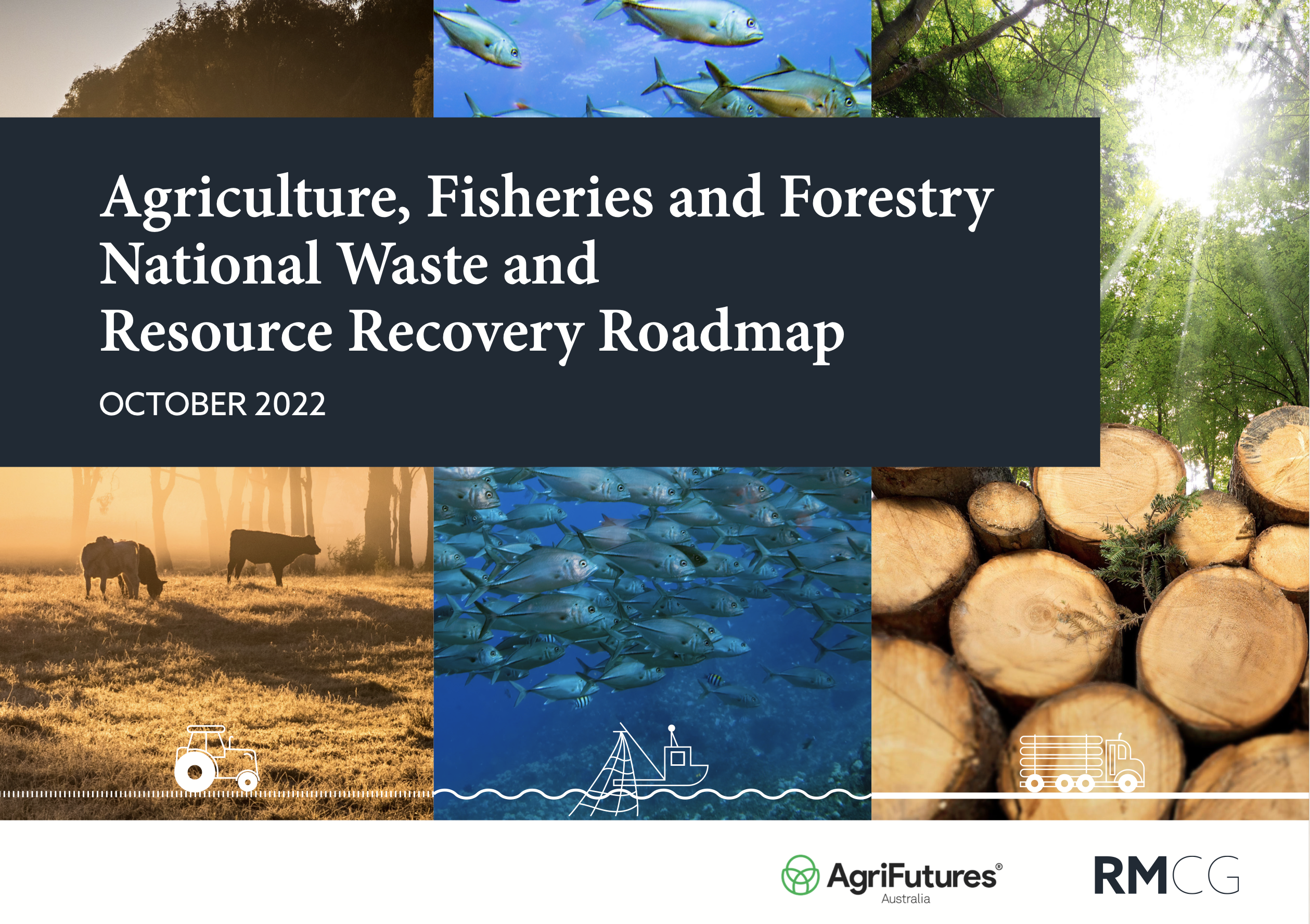22 May 2023
Media release: National roadmap launched to guide waste management in ag, fisheries and forestry
A national roadmap is now available for Australia’s agriculture, fisheries and forestry sectors to effectively manage pre-farm gate waste using the principles of a circular economy and the waste hierarchy.
Developed by RM Consulting Group (RMCG) – a multi-disciplinary consultancy specialising in environment, agriculture and communities – the National Waste and Resource Recovery Roadmap is one initiative produced through AgriFutures Australia’s Pre-Farm Gate Waste Program.
Since 2021, the program has worked to align Australia’s agriculture, fisheries and forestry industries with the National Waste Policy, understand producers’ current challenges in managing on-farm waste, identify potential solutions and complement existing initiatives in this space.
“Pre-farm gate waste is a significant challenge for Australia’s agriculture, fisheries and forestry sectors,” RMCG Principal Dr Anne-Maree Boland said.
In 2020-21 around 9.8 million tonnes of pre-farm gate waste was produced, including around 100,000 tonnes of plastic waste and 163,000 tonnes of workshop material such as tyres, oil and batteries. While most pre-farm gate waste was organic (around 9.55 million tonnes), this waste is often used beneficially on-farm such as through returning to the soil for improved soil health or reducing soil erosion risk.
“There is significant interest from the general community and consumers to manage resources better and reduce the generation of waste more broadly – and Australia’s primary industries are keen to play their part in the solution,” Dr Boland said.
Roadmap and reports now available
RMCG worked closely with the agriculture, fisheries and forestry sectors to coordinate three projects focused on pre-farm gate waste as part of the program, including the development of the national waste roadmap, options analysis and data collection.
More than 200 industry representatives were consulted through interviews, workshops and a reference group to better understand the challenges related to on-farm waste and potential solutions.
The published reports ultimately provide clear guidance to industry on ways to reduce their waste footprint on-the-ground and include:
- The National Waste and Resource Recovery Roadmap
- Baseline waste data
- Guidelines for waste data collection
- Options for improved waste management.
Additional reports are also available as part of the program which were developed by the University of Technology Sydney and Murrang Earth Sciences:
- Towards circular material futures: Development of innovative solutions to recycle and re-purpose existing pre-farm gate waste
- Designing optimal solutions for workshop waste.
“These reports and the roadmap were developed with and for industry,” Dr Boland said.
“The reports have given us a clearer picture of the amount of plastic, organic and workshop waste on-farms, its fate and current recycling rates. We have also identified existing options for dealing with waste and improving the recovery of resources.
“The roadmap provides an opportunity for primary industries to show their commitment to managing waste. It highlights some of the barriers for producers to ‘move up the waste hierarchy’ and identifies tangible and practical solutions to put in place considering the specific needs of individual sectors, different waste streams and regional variances.”
Next steps
RMCG was recently appointed by AgriFutures Australia to lead the National Farm Waste Coordination Services project which will continue this important work and progress implementation of the National Waste and Resource Recovery Roadmap over the next 12 months.
The project will collaborate closely with the agriculture, fisheries and forestry industries to build ownership and demonstrate their ongoing commitment to waste resource recovery on-farm, coordinate efforts across industry sectors and align with industry sustainability frameworks.
Media contact
Dimi Kyriakou, RMCG Communications Consultant, 0488 124 626, dimik@rmcg.com.au
